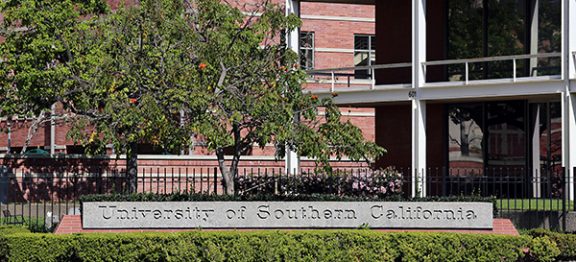
Brian T. Gravdal, Esq.
1. Background Facts
Carson Barenborg was dancing on a makeshift raised platform at a fraternity party near the University of Southern California (USC) when another partygoer bumped into her, causing her to fall to the ground and suffer serious injuries. Barenborg, who was not a USC student, sued USC and others for negligence, alleging that the university had a duty to protect her from an unreasonable risk of harm and breached that duty by failing to prevent or shut down the party. The trial court denied USC’s motion for summary judgment. The Court of Appeal for the Second District granted USC’s petition for writ, vacated the trial court’s denial of summary judgment and directed the trial court to enter an order granting the motion for summary judgment in favor of USC. University of Southern California v. Superior Court, B288180 (Los Angeles County Super. Ct. No. BC597033), Nov. 27, 2018 (cert. for publication, Dec. 19, 2018).
2. No “Special Relationship” with Plaintiff
Citing Regents of the University of California v. Superior Court (2018) 4 Cal.5th 607, the court noted postsecondary schools have a special relationship with their students while they are engaged in activities that are part of the school’s curriculum or closely related to its delivery of educational services. Students depend on their college to provide structure, guidance, and a safe learning environment. Meanwhile, the college has superior control over the campus environment, imposes rules and restrictions, employs resident advisors, mental health counselors, and campus police, can monitor and discipline students, and, more broadly, has the power to influence students’ values and behavior. Regents stated, “The special relationship we now recognize . . . extends to activities that are tied to the school’s curriculum but not to student behavior over which the university has no significant degree of control.”
Here, these factors weighted against applying the special relationship doctrine: (i) Barenborg was not a student; and (ii) Barenborg was not engaged in any activity closely related to the delivery of educational services. Barenborg further argued that USC had a special relationship with her based on its control of the property because the fraternity house was subject to USC’s policies and was monitored by its public safety officers. Rejecting this argument, the court concluded that USC did not have sufficient control over the property where the injury occurred. Also, USC did not possess or control the fraternity house and did not hire security at the fraternity house.
3. No “Special Relationship” with Fraternity
Barenborg also argued that USC had a special relationship with Cal. Gamma and its members because USC had the ability to control the fraternity by enforcing the university’s policies regarding alcohol use and social events. She notes that one of the stated goals of USC’s policies was to protect the campus community, including invitees to Greek Row.
In rejecting this argument, the court noted: A college has little control over noncurricular, off campus activities, and it would be unrealistic for students and their guests to rely on the college for protection in those settings. The dependency and control that are characteristic of special relationships are absent in these circumstances.
4. Negligent Undertaking Doctrine is Inapplicable
The negligent undertaking theory of liability holds that a person who has no affirmative duty to act but voluntarily acts to protect another has a duty to exercise due care if certain conditions are satisfied. In rejecting the application of this doctrine, the court concluded, by adopting policies regarding alcohol use and social events and providing a security patrol both on and off campus, USC did not assume a duty to protect invitees from third-party conduct at fraternity parties. The court further held: “By establishing policies governing fraternities, providing a security patrol with authority to enforce those policies both on and off campus, and failing to enforce those policies by shutting down the Cal. Gamma party after it began or preventing the party from occurring in the first place, USC did not create any new peril. USC’s failure to prevent or curtail the party allowed the party to occur and continue, but neither created the party nor increased the risks inherent in the party.”
Finally, the court considered the Rowland factors and determined that no duty existed based upon that further consideration. To read the full opinion, click HERE.
